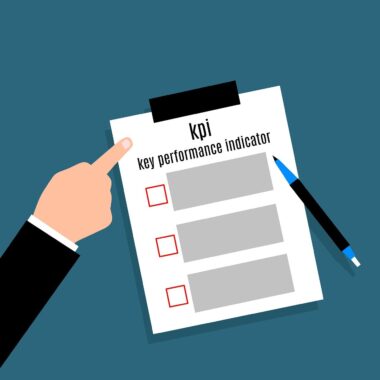Linking Lean Accounting to Corporate Social Responsibility Initiatives
Lean accounting focuses on refinements that enhance the value proposition of business operations while minimizing waste. These initiatives are not only designed to improve efficiency but also align closely with Corporate Social Responsibility (CSR) philosophies. The integration of lean accounting into CSR frameworks can improve transparency and accountability. Stakeholders increasingly demand businesses to demonstrate social and environmental responsibility. Therefore, aligning financial practices with CSR enhances stakeholder trust and loyalty. The lean methodology incorporates principles such as reducing unnecessary processes and improving value streams without overproducing. This can lead to significant resource conservation, resulting in less waste and lower environmental impact. Furthermore, lean accounting encourages continuous improvement, which aligns with CSR objectives. By sustaining these practices, corporations can deliver economic benefits while addressing social challenges in their footprints. Ultimately, the alignment of lean accounting and CSR can drive sustainable business practices that cater to both profit and purpose. This strategic linkage creates a value-driven organization that is responsive to societal needs while maintaining operational excellence. Moreover, training employees about these synergies will enhance performance and foster a culture supporting both lean accounting and CSR.
The Role of Lean Accounting in CSR
Lean accounting plays a crucial role in simultaneously enhancing operational efficiency and promoting CSR initiatives. By focusing on the objective of waste reduction, organizations can reallocate resources towards beneficial CSR activities. Techniques from lean accounting such as value stream mapping, standardization, and continuous improvement can identify redundancies and inefficiencies, turning these savings into investments in social projects or environmental initiatives. For businesses, this transformation is significant for several reasons. First, it provides a strategic approach to managing both economic and social goals together. By embedding CSR into operational strategies through lean accounting, businesses can better allocate funds to their community outreach programs. Furthermore, effective communication of these efforts through transparent financial reporting fosters trust and enhances brand reputation. In addition, companies that effectively merge lean practices with CSR initiatives can attract socially conscious consumers. This approach creates a competitive advantage, linking corporate profitability with ethical responsibility. Practitioners of lean accounting can lead their organizations towards a dual-bottom-line approach, focusing on financial success while making meaningful social contributions. Ultimately, this alignment reinforces the commitment to sustainable and responsible business practices.
One tangible outcome of integrating lean accounting with CSR initiatives is the potential to drive innovation. Lean principles encourage fundamental rethinking of how resources are used, promoting adaptable responses to changing social needs. This adaptability can lead to innovative solutions and products that meet both market demands and social responsibilities. For instance, a company can leverage lean accounting to design a product that minimizes waste and utilizes sustainable materials. Such products appeal to environmentally-conscious consumers and can set a new industry standard. Furthermore, this innovation can lead to operational efficiencies that enhance profit margins. The process of continuous improvement inherent in lean accounting allows businesses to iteratively assess their CSR impacts and practices. Teams can collaborate to brainstorm solutions to reduce waste while also enhancing the well-being of communities. By refining their operational focus through lean accounting, companies can find new pathways to fulfill their CSR commitments. The feedback from these innovation cycles reinforces the capabilities of the workforce and deepens the commitment to regarding CSR as a vital business component. In practice, this methodology fosters a culture that encourages stakeholder engagement and aligns the company’s objectives with societal benefits.
Challenges and Opportunities of Integration
While the alignment of lean accounting with CSR presents numerous benefits, various challenges accompany this integration. Resistance to change remains a common obstacle; employees may be hesitant to adopt new processes that disrupt their routines. Additionally, organizations may confront difficulties in measuring the impact of CSR initiatives initiated through lean accounting. It can be tough to quantify intangible benefits, such as improved community relations or enhanced brand reputation. Establishing systems and metrics that accurately reflect these benefits is crucial, requiring commitment from management to foster an environment conducive to innovation. Another challenge includes aligning different departments towards a unified goal. For successful integration, departments such as finance, operations, and HR must collaborate closely to ensure their individual efforts contribute to overarching CSR objectives. Nevertheless, these challenges also present opportunities. Businesses that navigate these integration hurdles effectively will position themselves as leaders in their respective industries. Engaging with local communities through CSR initiatives can not only cultivate goodwill but also inspire employee loyalty, reducing turnover. Moreover, companies can enhance their operational efficiencies through lean principles, leveraging these improvements to bolster CSR commitments that resonate with consumers.”},{
Linking lean accounting and CSR creates an environment of shared values, promoting a culture of responsibility, innovation, and accountability. Companies that successfully bridge these practices effectively engage stakeholders by demonstrating how economic performance aligns with societal contributions. Regular assessments and reports of both financial and social impacts can enhance stakeholder confidence and loyalty. Furthermore, businesses can gain critical insights into consumer preferences, adapting their strategies in response to changing expectations about social and environmental issues. As businesses continue to embrace lean principles, they can cultivate a more profound commitment to ethical practices supported by transparent accounting. Socially, this alignment can influence community health and welfare, fostering an environment of growth and sustainability. Ultimately, lean accounting offers organizations an opportunity to craft narratives that resonate with consumers looking for brands that reflect their values. Through the strategic application of lean methodologies, companies can achieve significant CSR initiatives that deliver real change in their operating environments. As they document their progress, businesses can build compelling stories around their contributions, showcasing the positive impacts of merging lean accounting with their CSR agendas, thus creating sustainable business models.
Future Directions for Lean Accounting and CSR
The future of lean accounting within the context of CSR initiatives is promising, as more companies recognize the value of sustainability in their business models. The evolving landscape of consumer expectations necessitates that organizations innovate to remain competitive. Companies that prioritize sustainability and transparency tend to improve their reputations significantly. As lean accounting principles can facilitate this commitment, there is a substantial opportunity for organizations to redefine their positions in the market. The integration of technology increases the capability to track resources efficiently, allowing organizations to measure and report their outcomes effectively. Tools like data analytics and digital platforms can connect lean initiatives with broader CSR objectives, enhancing decision-making processes. Furthermore, businesses can expect to witness a gradual increase in regulatory pressures, pushing for greater accountability and environmental stewardship. Proactive organizations will need to embrace lean accounting to adapt to these changes efficiently. By fostering a culture that all employees share, these organizations can transform their business activities into impactful societal contributions. The combination of lean accounting and CSR will undoubtedly set the tone for a more responsible and sustainable business environment, beneficial for both companies and their stakeholders.
In summary, the intersection of lean accounting and corporate social responsibility encapsulates an innovative approach toward evolving business practices in today’s economy. The mutual reinforcing of operational efficiencies and CSR initiatives leads to a more sustainable way of doing business that benefits both the organization and society at large. Companies willing to embrace this integration will ultimately gain a competitive advantage as they become trusted agents of change within their industries. They will begin to attract socially conscious consumers who are keen to engage with brands that reflect their values. The journey toward this integrated approach requires commitment, training, and a willingness to foster a culture of continuous improvement. Emerging trends indicate that sustainable practices will become a key differentiator in the marketplace, highlighting the importance of transparent communication with stakeholders. Lean accounting provides a framework that supports and amplifies a company’s CSR efforts, allowing for the measurement and reporting of social impacts alongside financial outcomes. This alignment not only enhances operational efficiency but can transform the overall perception of the company within its community and market. As organizations become increasingly aware of their responsibilities, the integration of lean accounting with CSR initiatives will drive the future of sustainable business.
It is essential for businesses to recognize the substantial benefits that arise from linking lean accounting to CSR initiatives. Doing so can lead to new market opportunities that are undetected without the lens of sustainability. As corporations emphasize transparency and social impact, they can maximize their influence and establish themselves as leaders in responsible business practices. A spirit of collaboration between teams can facilitate innovations that address both operational efficiencies and social commitments. Moreover, such organizations can become beacons of best practices, inspiring others to follow suit in adopting lean principles that contribute positively to their community. The successful integration ultimately requires commitment at all levels of the organization, encouraging employees to embrace both excellence in efficiency and a robust sense of social responsibility. As businesses evolve and adapt to market demands, linking these principles will be imperative. Moreover, taking proactive steps today can lead to better long-term results that benefit not just the organization but society as a whole. In conclusion, the strategic interplay between lean accounting and CSR initiatives can create a thriving business environment where quality, efficiency, and social responsibility coexist harmoniously.





